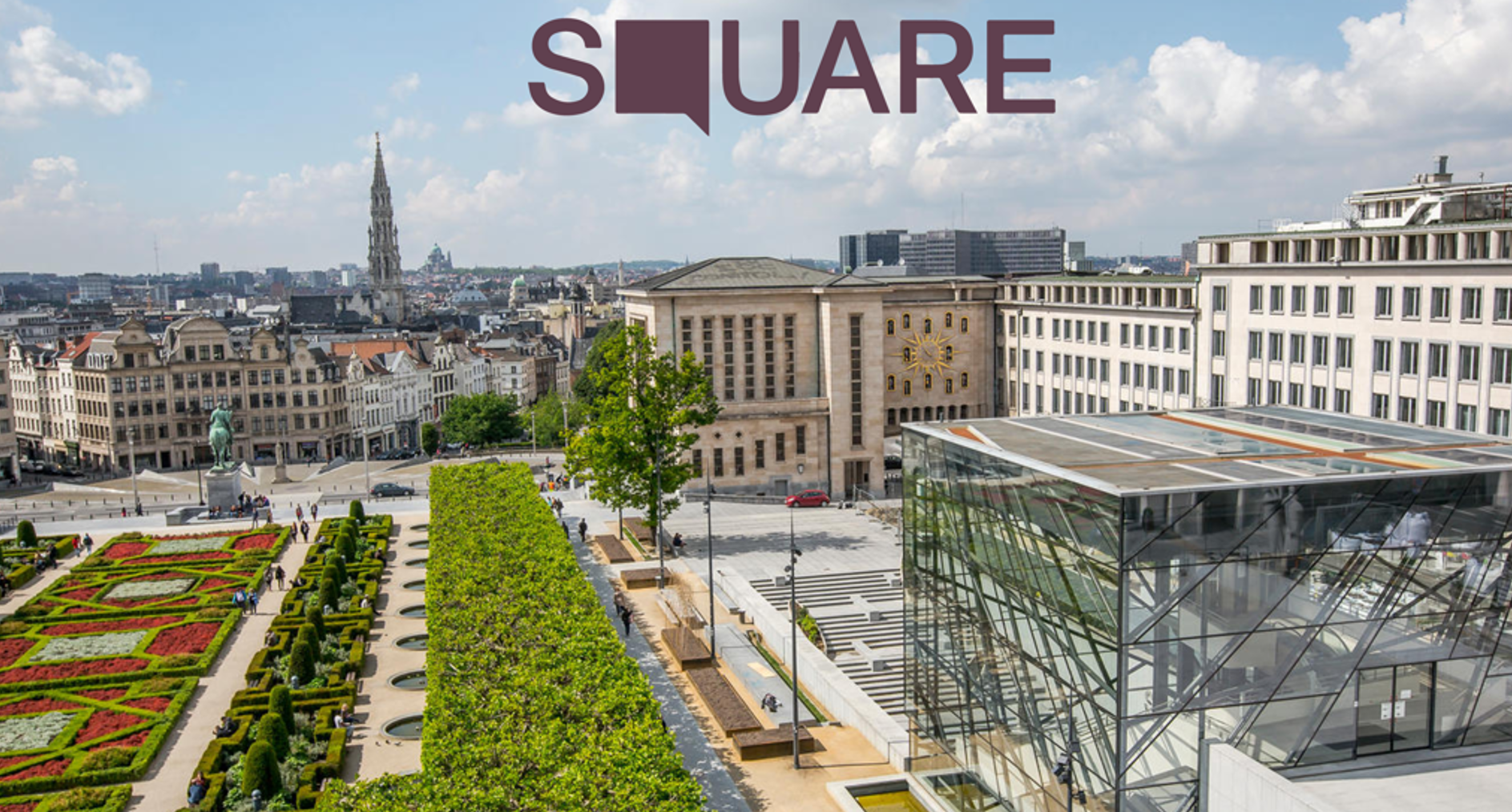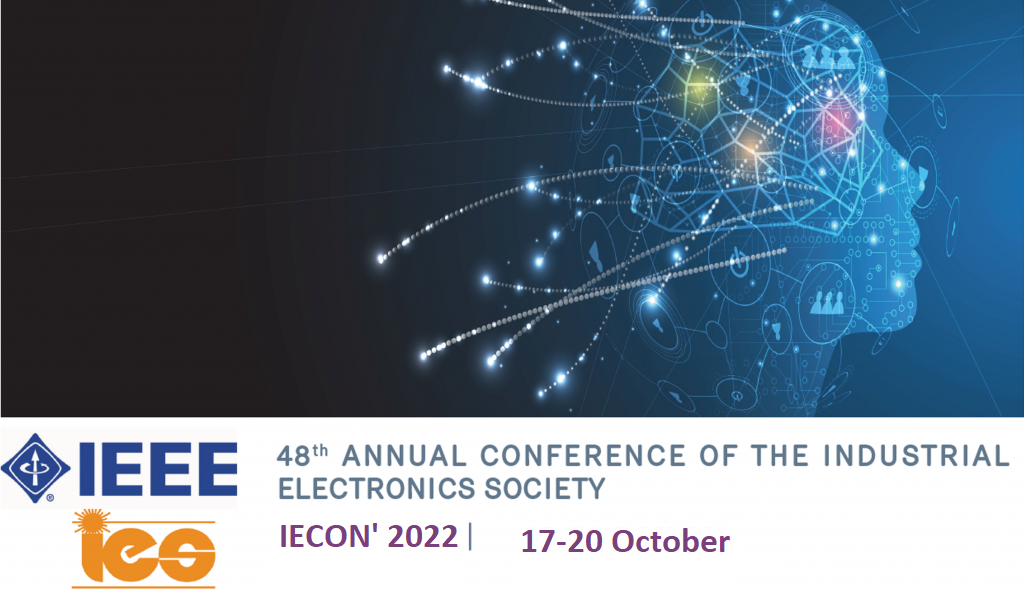IEEE IECON 2022 will host three Industry Forum sessions during the conference, addressing an impressive variety of themes: Digital Health, Industrial Communications and Electronics Technology Trends, and Policies and Direction in European Innovation. Industry Forum is an IES program for Industry to engage with research in a productive manner. Industry speakers are invited to discuss industry, technology directions, and, most importantly, challenges for the companies. These presentations inform the attendees on the vision and application of technologies in business and what challenges companies are encountering. The forum also offers the opportunity for researchers to study the particular challenge and know the contact in the companies should they have a solution that the company might utilize. We want all conference attendees to engage in the Industry Forum and listen to the presentations of our industry speakers so all communities can benefit.
Organisers
 Michael Condry ClinicAI IEEE Life Fellow
Michael Condry ClinicAI IEEE Life Fellow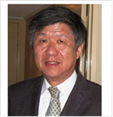 Victor Huang Sage Technology Resources Partner
Victor Huang Sage Technology Resources Partner Stamatis Karnouskos SAP IEEE Fellow
Stamatis Karnouskos SAP IEEE Fellow
Session 1: Strategies and Innovations in Digital Health
2:00– 3:30 pm CEST, Tuesday, October 18, 2022Chair: Dr. Michael Condry, ClinicAI
This Industry Forum session is a panel that reviews the work done for the Health Informatics workshop and considers the ways that industrial situations can be impacted. Industry 4.0 focuses in improved industry production and operation with cyber-physical technologies. Conceptually, similar methodology applies to human health. This is critical to industry both from an employee aspect and customer. A company must always consider the health of their employees in their industrial environment. In addition, industry has observed detecting impacts to individuals from industry products has resulted in great loss to companies. With these technologies this impact can be discovered earlier and addressed pro-actively reducing losses to the company.
These are just some on the areas the panel will discuss including how standardization and requirements can assist in making this overall needed data available to industry to analyze.
 Dr. Gore Datta Visiting Professor University of California, Berkeley
Dr. Gore Datta Visiting Professor University of California, Berkeley Dr. Christoph Fischer Principal Systems Architect Roche
Dr. Christoph Fischer Principal Systems Architect Roche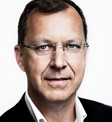 Gilles Lunzenfichter Title Medisante Group
Gilles Lunzenfichter Title Medisante Group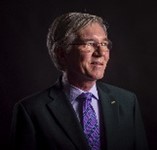 Dr Robert Stegwee Strategic Consultant for Health ITChair of CEN/TC 251 Health Informatics
Dr Robert Stegwee Strategic Consultant for Health ITChair of CEN/TC 251 Health Informatics
Talks
2:00 – 2:15 pm Talk 1: An Overview of IES Digital Health Informatics Workshop
Dr. Michael Condry, ClinicAI
Dr. Michael Condry, ClinicAI
Abstract: Workshop
brief summary and potential impact on Industrial Electronics
Bio:
Michael Condry, IEEE Life Fellow, IES Senior AdCom, member of Computer, TEMS, CTSoc and EMBS. Consultant, ClinicAI Board advisor, former CTO Intel Client Division, history including industry and academic positions. More BIO see http://www.condry.org
2:15 – 2:25 pm Talk 2: DISRUPTIVE TECHNOLOGIES MEETS GLOBAL DEMAND The
World of Mobile and Emerging Technologies
Dr. Gora Datta, University of
California, Berkeley
Abstract:
With the phenomenal rise of mobile devices & smart phones globally in the past few years, we have now entered the digital age – the agricultural age, the scientific age, the industrial age, the information age and now the mobile age! Move over chalk & slate, paper & pencil, keyboards & laptops, here comes “swish, swipe & tap” on a mobile device. “Beam me up Scotty!”
The talk will also touch upon a wide-ranging topics and applications of Blockchain; AI/ML/ES/AS and the emerging field of Data Science; VR/AR/MR/XR realities to avatars, Drones & Robots to 3D-printing to micro-controller boards & single board computers; innovations in medical devices & mobile health apps; big data, cloud computing, edge/fog computing to IoT…smart pandemic management to air quality management a global perspective of advancing technology for the benefit of humanity.
Bio:
Gora Datta, HL7 Visiting Scholar at University of California Berkeley on Digital Health; founding co-Chair HL7 Mobile Health Workgroup, founding-Covenor ISO/TC215 Traditional Medicine, founding-Chair IEEE Blockchain Initiative Healthcare. https://www.linkedin.com/in/goradatta/
2:25 – 2:35pm Talk 3: Ecosystem Transformation through Secure Plug & Play Interoperability
Christoph Fischer, Roche
Abstract:
Users of medical devices have a diversity of needs and goals. Users expect to connect medical devices to their smartphone, view the data in the cloud, easily share the information with health care providers, and interoperate with their choice of devices. It is impossible for one company to serve these needs. Thus, interoperable systems and strong partnering capabilities are required.A set of international ‘Secure Plug & Play Interoperability’ standards, implementation guidelines, tools, and certification path for medical device manufacturers were created.Standardized ‘Secure Plug & Play Interoperability’ transforms the ecosystem. It helps manufacturers, system integrators, and regulators to create and review interoperable systems in an efficient but comprehensive manner, with the added benefit that lower regulatory costs and risks allow smaller, innovative manufacturers to participate in the ecosystem.
Bio:
Christoph Fischer, Dr. rer. medic., Principal Systems Architect & Product Cybersecurity Specialist at Roche Diabetes Care. Active contributor of IEEE 11073 PHD WG, Bluetooth SIG MedWG, and PCHA. (ISC)2 Certified Systems Security Architecture Professional (CISSP, CISSP-ISSAP), Certified Agile Regulatory Specialist™ (CARS), and Certified SAFe® Architect (ARCH, SA, SP). See https://www.linkedin.com/in/christoph-fischer-00206b54/
2:35 – 2:45pm Talk 4: Standards for the European Health Data Space.
Dr. Robert Stegwee,
Chair of CEN/TC 251 Health Informatics
Abstract:
The European Health Data Space is being prepared by the European Commission. Key in the proposed regulation is the control European citizens will have over their personal health data and the interoperability of personal health data between different systems. The way in which these requirements will be implemented is still unclear, but it will definitely impact the industry providing solutions for personal health data capture and processing. The objective of the EHDS regulation is twofold. First, to enable the citizen to take their personal health data with them, wherever they go within national health systems and in cross-border care. This will put extra requirements on both functionality and interoperability of solutions offered on the EU market. Second, to make (anonymised) health data available for analytics, research and algorithms. The latter opens up a wealth of data, also to industry, for example for training digital algorithms in the recognition of specific diseases or the advice on treatment options and their expected outcomes. In this talk I will focus on the expected requirements for interoperability of both electronic health record (EHR) systems and for the quality and reliability of patient facing apps.
Bio:
Strategic Consultant for Health IT, Chair of CEN/TC 251 Health Informatics and member of the European eHealth Stakeholder Group; member of the Joint Initiative Council for Global Health Informatics Standardization
2:45 – 2:55 pm Talk 5: Medical IoT: Why Healthcare is lagging behind other
Industries in IoT Adoption
I
Gilles
Lunzenfichter, Medisante Group
Abstract:
Healthcare is lagging behind other industries in terms
of IoT adoption. How come? While the pandemic is expected to act as a booster of medical IoT in the wake of
tele-consultation, this presentation outlines the major obstacles that prevented healthcare from
adopting IoT so far. While IoT could certainly be as valuable for healthcare providers as it has been for
other industries, it seems that automotive or utilities – that are
organized in oligopolies – have been more IoT-friendly so far. What can the healthcare industry learn though from connected cars to be successful
in connected care? The talk will outline how abstracting in a single cloud a broad range of devices
designed for telehealth has the potential to completely redefine device interoperability and management
across vendor and country silos while keeping the device experience of care teams and their patients
simple and secure.
Bio:
Gilles Lunzenfichter is the CEO of Medisanté Group AG, an innovator in medical IoT. He wants to put the internet of things (IoT) to work for care teams by leveraging the cloud and cellular IoT in an open manner for non-identifiable device data while leaving the data sovereignty of sensitive data tohealthcare providers and their health IT systems.
2:55 – 3:30pm PANEL DISCUSSION: Strategies and Innovation in Digital Health
Chair: Dr. Michael Condry,
ClinicAI
Panelists: All
Speakers
Session 2 : New Infrastructure for Digitalization and Sustainability
2:00 – 3:30 pm CEST, Wednesday, October 19, 2022Chair: Dr. Victor Huang,
Sage Technology Resources
The IES prides itself with
its diverse and highly technical fields of interest in industrial electronics technologies. This session explores three presentations of the emerging
advances in our technical fields of tele-and industrial communications, and powering e-mobility. The session has
gathered three industry experts covering the field of the emerging 6G telecommunications
technologies, and industrial wireless in the forefront of its applications, and a look at industrial
innovations in the powering of today and tomorrow’s e-mobility in terms of fast charging applications for the
world-wide conversion to etransportation and electric vehicles.
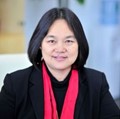 Dr. Chih-Lin I
Chief Scientist
China Mobile
Research Institute
Dr. Chih-Lin I
Chief Scientist
China Mobile
Research Institute Dr.-Ing. Bernard WilleHaussmann Head, Smart Grid Planning & Operations Fraunhofer Institute for Solar Energy Systems ISE
Dr.-Ing. Bernard WilleHaussmann Head, Smart Grid Planning & Operations Fraunhofer Institute for Solar Energy Systems ISE Dr. Zhibo Pang Sr. Principal Scientist ABB/KTH
Dr. Zhibo Pang Sr. Principal Scientist ABB/KTH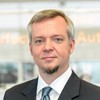 Dr. Dietmar Bruckner Unit Manager Software B&R Industrial Automation
Dr. Dietmar Bruckner Unit Manager Software B&R Industrial Automation
Talks
2:00 – 2:25 pm Talk 1: Green Technologies for Sustainability
Dr.Chih-Lin I, Chief Scientist, China Mobile Research Institute
Abstract: Pending
Bio:
Dr. Chih-Lin I is CMCC Chief
Scientist of Wireless Technologies. She
received her PhD EE from Stanford
University. She has won She has won
the 2005 IEEE ComSoc Stephen Rice Prize, the 2018 IEEE ComSoc Fred W. Ellersick Prize, the 7th IEEE Asia-Pacific
Outstanding Paper Award, and the 2015 IEEE Industrial
Innovation Award for Leadership and Innovation in Next-Generation Cellular
Wireless Networks. She is the Chair of O-RAN Technical
Steering Committee and an O-RAN Executive Committee Member, the Chair of FuTURE 5G/6G SIG, the Chair of WAIA
(Wireless AI Alliance) Executive Committee, an
Executive Board Member of GreenTouch, a Network Operator Council Founding
Member of ETSI NFV, a Steering
Board Member and Vice Chair of WWRF, a Steering Committee member and the
Publication Chair of IEEE 5G and
Future Networks Initiatives, a member of IEEE ComSoc SDB, SPC, and CSCN-SC, and a Scientific
Advisory Board Member
of the Singapore NRF. She has
100+ patents, published 200+ Journal
and conference papers, and 3 books. She is a Fellow of IEEE and a Fellow of
WWRF. Her current research interests
center around ICDT Deep Convergence: “From Green & Soft to Open & Smart”.
2:25
– 2:45 pm Talk 2: Electric Vehicle Supply Equipment –
Testing of Smart Grid Functionality
Dr.-Ing.Bernhard Wille-Haussmann,Fraunhofer ISE
Abstract:
The share of electric vehicles (EV)
in transportation is increasing steadily and fossil fuels are replaced by
electricity. In order to fulfill environmental requirements this electricity
should come from renewable and volatile sources. As EVs are big consumers it is
consensus that for a high share of electric vehicles smart or controlled
charging is essential in order to increase share of renewables and to avoid
grid bottlenecks. Many concepts for smart charging are discussed. On-site solar
optimized charging with uni- and bidirectional charging becomes popular more
and more. But also restrictions and control signals from external operators
need to be integrated into the EV supply equipment (EVSE). All control signals
need to be transformed to the EV. All the control must work between various
operators, cars, and charging stations and needs to be tested.
In the presentation we will motivate for smart
charging control and discuss the needs for testing. This will lead us to the
Hardware-in-the-Loop (HIL) test facility the Digital Grid Lab
(digital-gird-lab.com) at the Fraunhofer-Institute for Solar Energy Systems
ISE. Here the researches have realized a digital twin of an electric vehicle
which emulates the real charging powers with the Power HIL setup. The emulated
charging controller is connected to the EVSE by typical communication standards
IEC61851 or ISO15118. With this the introduced digital twin is the basis to
realize functionality smart charging tests of EVSE which we will be introduced
in the presentation.
Bio:
Dr.-Ing. Bernhard Wille-Haussmann, born in
1977, studied electronic engineering at the University of Stuttgart with focus
on communication technologies. Since 2005 he works at Fraunhofer ISE in the
field of managing distribution grids with a high penetration of renewable and
distributed generators and storages. In June 2011 he finished his PHD with the
topic “Usage of the symbolic model reduction for analysing control strategies
in Smart Grids”. Since 2010 he is head of the group Smart Grid Operation and
Planning. Sind 2021 he is deputy head of the Smart Grid department at
Fraunhofer ISE. He is coordinating the work in the Digital Grid Lab
(www.digital-grid-lab.de). He offers more than 15 years of experience in the
field of smart grids.
2:45 – 3:05 pm Talk 3: 5G communications and computing
for industrial control systems:
Where we are and directions
Dr. Zhibo Pang, ABB
Abstract:
Industrial applications, especially the use cases in time critical control systems, have been one of the main drivers of the 5G development and investment. The first version of 5G, R15 has been released for about 3 years, and commercial 5G products with eMBB profile have been available for about 2 years. Now it is time to reflect where we are. In this talk, I will introduce the findings from our systematic evaluation of 5G latency, reliability, compatibility to industrial networks, etc. from the system perspective. Then I will identify some directions that need more efforts from both industry and academia.
Bio:
Zhibo Pang, PhD & MBA, is currently a Senior Principal Scientist at ABB Corporate Research Sweden, and Adjunct Professor at the University of Sydney and the Royal Institute of Technology (KTH). He is a Senior Member of IEEE and Co-Chair of the Technical Committee on Industrial Informatics. He is Associate Editor of IEEE TII, IEEE JBHI, and IEEE JESTIE. He was General Chair of IEEE ES2017 and General Co-Chair of IEEE WFCS2021 and Invited Speaker at the Gordon Research Conference AHI2018. He was awarded the “Inventor of the Year Award” by ABB Corporate Research Sweden, three times in 2016, 2018, and 2021 respectively. He works on enabling technologies in communication, computing, and intelligence for Industry4.0 and Healthcare4.0.
3:05 – 3:25 pm Talk
4: Emerging Technologies in industrial automation for enhancing digitalization and sustainability
Dr. Dietmar Bruckner, B&R Industrial Automation
Abstract:
Manufacturers have to deal with a world that is changing faster every day: They have to produce more product variants in smaller batch sizes. The lifecycle of each product is getting shorter and shorter. Due to unpredictable demand and supply fluctuations, manufacturers must react to variations on very short notice. Last but not least, there is mass customization: the ability to make individualized products with the efficiency of mass production. These days, efficient usage of energy and material becomes even more key. In dealing with these challenges, several technologies are (finally) entering the manufacturing world: electromagnetic transportation systems (planar and track-based), synchronized machine vision, digital twins, and coherent industrial communication. This talk will showcase those technologies and their application to digitalized, adaptive manufacturing.
Bio:
Dietmar Bruckner is with B&R Industrial Automation since 2013, where he is unit manager of Real- Time Systems and Connectivity in the R&D department Software. He is responsible for the development of a wide range of Industrial Connectivity solutions based on (real-time) Ethernet, and of the real-time operating system Automation Runtime for PC and PLC platforms. Before B&R, he worked as a University Assistant (i.e., Assistant Professor) at the Institute of Computer Technology of the Vienna University of Technology, managing research teams in the areas of field busses, building automation, and artificial general intelligence.
Session 3 European Innovation: Policies and Directions
2:00 – 3:30 pm CEST, Thursday, October 20, 2022
Chair: Dr. Stamatis
Karnouskos, SAP
This interdisciplinary
session is devoted to strategic European research and innovation and
encompasses policies, strategic research roadmaps, and technology. The session aims at
providing the participants with insights and food for thought pertaining to some aspects pertinent to the
European Union's €95.5 billion (2021-2027) efforts for research and innovation funding. The specific
speakers and their talks will be made available at a later point
Speakrs
Talks
2:00 – 2:25 pm Talk
1: The EDF Group strategic plan for electric mobility
Olivier Dubois
Abstract: Overview of global decarbonization of the economy in France, in particular the transport sector. EDF contribution and strategy for e-mobility development (smart charging, partnerships).
Bio: Previous career: Electronics engineer in 1989 (ENSERG, Grenoble). After one year of military service in the French Navy, I spent 10 years in the microelectronics sector in technical and sales positions (7 years in the Session 3 European Innovation: Policies and Directions 2:00 – 3:30 pm CEST, Thursday, October 20, 2022 Olivier Dubois E-Mobility Director EDF Group Jan Komarek European Commission DG CONNECT Matthias Kuom European Commission DG CONNECT Prof. Antonello Monti IEEE European Public Policy Committee semiconductor division of Texas Instruments and 3 years at Cadence Design Systems). In 2000, I joined EDF Group in the Department of Key Accounts (start of energy markets deregulation) where I stayed during 6 years before moving to Brussels for 3 years as Sales Director of EDF Belgium. I returned in France end of 2009 in the East Region as Regional Director for 4 years. From 2013 to 2015, I was Director of sales for EDF Continental Europe, then from 2015 to 2018, Director of Synergies in the Corporate Customer & Services division. From 2019 to 2020, I was Director of Strategic Partnerships & Development at Electric Mobility Division of EDF Group. Last February 2021, I was appointed as Director of E-Mobility for the EDF Group.
2:25 – 2:50 pm Talk 2: Cloud Edge Computing Continuum and the Circular economy
Jan Komarek and Matthias Kuom
Abstract: For Europe to maintain its strengths
in the computing continuum, it needs to create future European platforms for
IoT and the edge, which are community driven and open. Under Horizon Europe
programme, the Commission supports R&I projects to develop meta-OS for the
edge that enable cloud and edge computing orchestrations. In essence,
foundational research is central for bringing computation, data and
intelligence closer to where the data is produced (sensors and devices); the
strategy is supported by the use of open source, whilst exploiting the momentum
of existing communities like Linux or Eclipse and it is accompanied by the
HiPEAC road mapping. Added value is demonstrated to achieve sustainability and
reducing the carbon footprint in key industrial and societal applications,
which in future require more power at the edge, such as buildings, e-mobility,
and energy. Also, collaboration is envisaged on fundamental research with the
US National Science Foundation, focusing on new concepts for distributed
computing and swarm intelligence. For Europe to maintain its industrial
strength, it is essential that it becomes more resilient to changes and
disruptions in supply chains. One element we are addressing in Horizon Europe
is the circular economy, which adds secondary raw materials to our resource
portfolio and helps us to reduce dependencies from single sources. To improve
the circular economy, we need a lot of data from the supply chains, the
production process itself and the use phase of a product. Therefore, we are not
only improving analytics and simulation in our research programme, but also
building the necessary data infrastructure with our DIGITAL programme outlined
in the data strategy. This includes, above all, the Manufacturing Data Spaces
and the Digital Product Passport. Authors: Jan Komarek, Rolf Riemenschneider,
Matthias Kuom. European Commission DG CONNECT/A4
Bio: Jan Komarek has an economic and statistical background and has been involved in technology research since 2009. He has been working in the European Commission as a programme officer in the field of the Internet of things and (previously) in the field of integrated care. Currently, he is responsible in the Directorate General Communications Networks, Content and Technology for the implementation of Horizon Europe and Digital Europe Programme. The current actions in his portfolio are mainly involving the paradigm shift from cloud to edge. The edge computing refers to data processing, which takes place at the periphery of the network as close to the end user as possible or even within an internet-of-things. This approach is often also referred to as decentralised intelligence and swarm computing. The actions involve the whole project lifecycle, namely the evaluations and the project monitoring. Prior to his current engagement, Jan worked since 2005 for three different parts of the Commission. In Directorate General Eurostat in Luxembourg, he was responsible for the build-up of statistical systems in Western Balkans and the accession negotiations. In the Directorate General Economic and Financial Affairs, he was involved in macroeconomic forecasting as well as in the debt and deficit procedure. Before joining the European institutions, Jan worked in the Czech Republic in telecommunications both in the private and in the public sector. Jan holds an economics degree from the Prague School of Economics as well as an international relations degree from Charles University.
Matthias Kuom is currently Seconded National
Expert to the European Commission, Directorate General for Communication
Networks, Content and Technology, in the unit CNECT.A.4 "Digital
Transformation of Industrial Ecosystems". Here he works on topics such as
digital platforms for industry and implementation of Digital Innovation Hubs within
the Digital Europe Programme. He drives forward the topics of Industry 4.0,
Data Spaces as well as business models and innovation strategies in the data
economy. His technological focus is on AI and robotics, blockchain, quantum and
other future technologies, and he is passionate about the international
networking of forward-thinking innovation players. He brings experience in
foresight as well as project and product management for ICT solutions from his
previous activities.
2:50 – 3:15 Talk 3: Converging at the edge: energy and ICT for a clean future
Antonello Monti
Abstract: The energy
transformation is creating a radical restructuring of the electricity
infrastructure making it more complex. This change is particularly happening at
the edge where the customers are active and the renewable energy sources are
connected. This new complex system needs ICT solutions to work properly and
create the same reliability we have today. Digitalization is the enabler of
this merge of energy and ICT. The talk will address how the process is evolving
in Europe and also the link between the technical and policy aspects.
Bio: Prof. Monti is director of the Institute for Automation of Complex Power Systems at RWTH Aachen University and group leader at the Fraunhofer FIT, Center for Digital Energy. Since 2018 he is also member of the Working Group Energy within the European Public Policy Committee of IEEE.
3:15pm - 3:30pm Panel Discussion
• Olivier Dubois, EDF• Jan Komarek, European Commission
• Matthias Kuom, European Commission
• Antonello Monti, IEEE Public Policy Committee
• Stamatis Karnouskos, SAP

